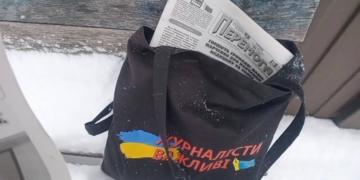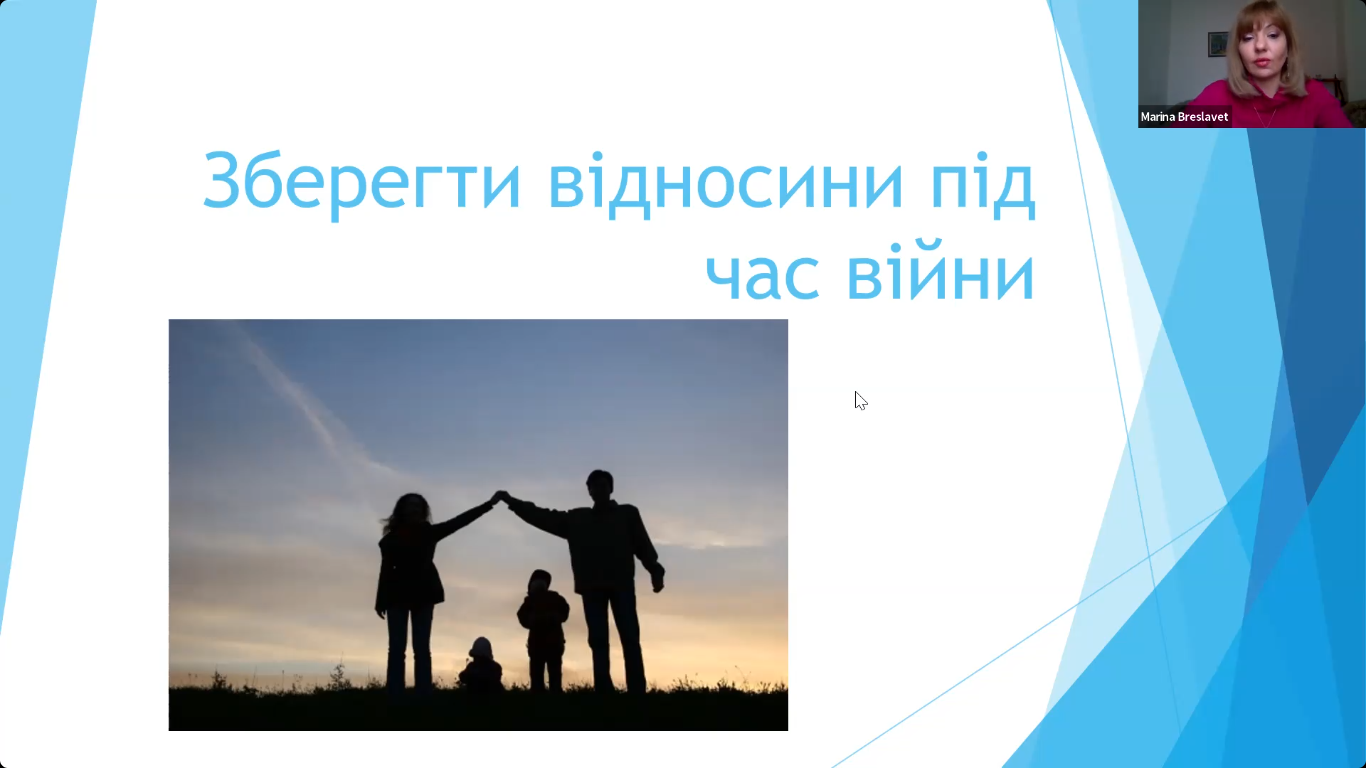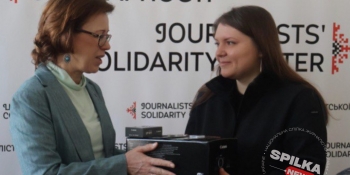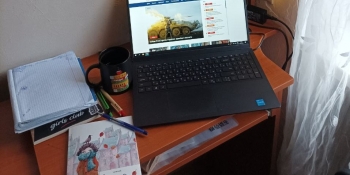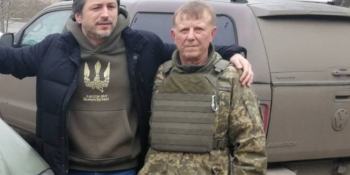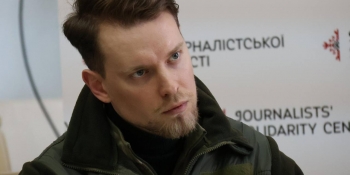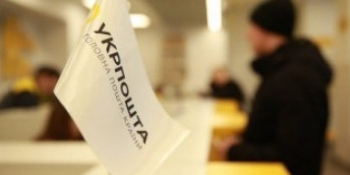The crisis exposes the weak points of the relationship, so if there was a lot of criticism or depreciation in the relationship, the separation will only make things more difficult. If close people are used to understanding each other, then at the moment of separation, they will say to their partner: “It’s hard for me, but I understand that it is the same for you too!” And it can fix a lot of problems.
These and other important observations and advice were presented during the webinar called Separation from Loved Ones due to War: How to Preserve Psychological Balance and Family Relations organized by crisis psychologist Maryna Breslavets from the Prostir center on Thursday, January 26. The event took place at one of the Journalists’ Solidarity Centers of the National Union of Journalists of Ukraine (NUJU).
As Sergiy Tomilenko, the President of the NUJU, noted, welcoming the participants of the webinar, psychological assistance to journalists who find themselves in a difficult situation “is one of the priorities of the Journalists’ Solidarity Centers.
“Attracting international donors, we are actively spreading among media workers the knowledge necessary for survival and effective work in war conditions. Psychological stability is no less important than physical and economic one in Ukrainian journalists and media. Every journalist is an “individual, and therefore they must take care of their psychological health, be able to properly relieve tension, which we have in excess in our lives today,” said Sergiy Tomilenko.
As Sergiy Tomilenko emphasized, the topic of the training event was chosen precisely at the request of members of the Union members. The war separated many families, including those of journalists, and it is telling that a significant part of the webinar participants is abroad.
According to Founder and Head of the IN-Person Corporate network Nataliya Nalyvaiko, who acted as a co-organizer of the event, in the current conditions, representatives of many professions, including journalists, are in need of periodic communication with psychologists and psychotherapists. She thanked all the participants of the webinar for their decision to do it.
As the webinar trainer / crisis psychologist / trauma therapist Maryna Breslavets noted, nowadays, there are practically no people in Ukraine who have not been touched by the war. Someone has a family member at the front, someone “abroad, or in other regions of Ukraine.”
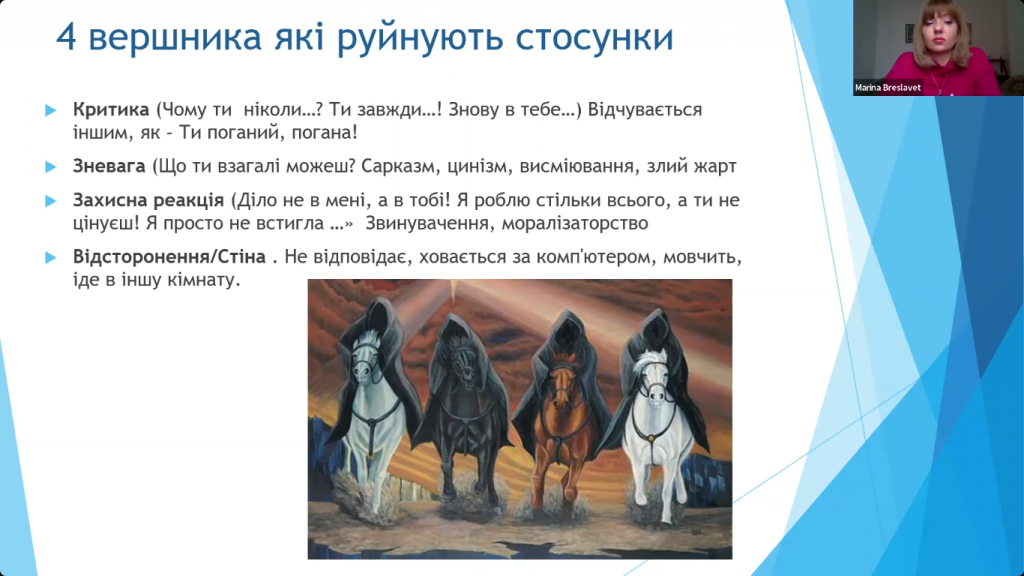
“We are in a state of constant stress, anxiety, of expecting tough news, and all this affects us. In families where their members have become separated, many factors able to worsen relationship exist. This happens because in such cases we have a bad idea of what is happening to our “second half”, we have different emotional and psychological states, we do not fully understand why our loved ones behave the way they do. We cannot understand the changes. When everything is fine in our life, we can easily overcome family troubles. Instead, when we experience insomnia, anxiety, panic attacks, etc., we are emotionally exhausted and find it difficult to handle conflict situations properly,” the specialist noted.
According to Maryna Breslavets, it is important to understand what type of attachment prevails in our loved ones: reliable (a person can easily stay alone), anxious (a person is nervous when left alone), avoidant (a person pretends to be self-sufficient and self-confident, in fact not being such) or disoriented (a person first actively demands attention, and then pushes it away). In crisis situations, the type of attachment comes to the surface, and its misunderstanding can be very damaging.
Maryna Breslavets also explained the reason for the so-called “storm in a glass of water”.
“When you react to some insignificant point excessively emotionally, maybe you got into a situation from your past… For example, if a man said to a woman: “We haven’t had our dishes washed!” she, being in a calm state, can answer: “Yes, I will wash” or “Wash, please.” And if a woman is in a crisis situation, she will immediately remember how her parents told her that she is “not a proper housewife” and that “no one will marry you.” The result will be an emotional explosion. At this moment, the woman “is not 25 or 30 years old, but 5 or 7, and she, like a child, needs to be told that everything is fine with her, that she has someone who will protect her. She needs to hear “we are together,” “we are a team,” “we can face life difficulties together,” says the psychologist.
Maryna Breslavets says that 80% of those who divorce say that they do not feel important and free in marriage. During the war, there are “four horsemen” that destroy relations: criticism (“Why don’t you ever…? Why do you always…? You have it again…”), contempt (“What can you do anyways?”), a defensive reaction (“I do so much and you don’t appreciate it!”), exclusion (silence, ignoring). All these are “options of aggression.” In these cases, the object of aggression feels all the pain that traumatized him in childhood…
Pleasant family situations that existed before the crisis, and which can now be remembered, hoping to return to them, help to overcome conflicts. Understanding each other’s dreams, desires, and expectations will also help. It will be useful to ask a loved one: what do you need in order for you to feel that I love you? When do you feel important?
“Wives of men who are now at the front often say: I didn’t even notice how much he did! and it’s all on my shoulders now! Even if you are in different countries, you can thank each other for what happened between you. For the everyday, emotional support you received. Pay attention in little things, in the feeling that “you can do something together” and feeling that you are not alone! Remember what you did together that gave you the feeling that you are a “team,” advises the psychologist.
She also talked about the rules of conversation that reduce stress. The purpose of such a conversation is to “listen and provide emotional support.” Firstly, the conversation should be limited in time. Secondly, you shouldn’t be in a hurry to give advice (“Are you sick abroad? Come back!”, “The boss is a “fool? Get fired!”), it’s better to just sympathize and provide emotional support. Thirdly, you should show interest, ask clarifying questions. Fourthly, it is worth showing sympathy: “It is clear now why you are so upset!” Fifthly, always take the partner’s side, and not criticize him. “After all, we are a team, we are together against others!” Sixthly, confirm the partner’s emotions: “Yes, it’s sad!”, “It’s really infuriating!”
“Our reactions to the difficult events of the war can be very different. It may seem to us that we are worse than our partner. But everyone has their own pain, and everyone who experiences it needs attention and support. And the worst thing we can do is to start measuring whose pain is greater, ours or our partner’s,” Maryna Breslavets concluded.
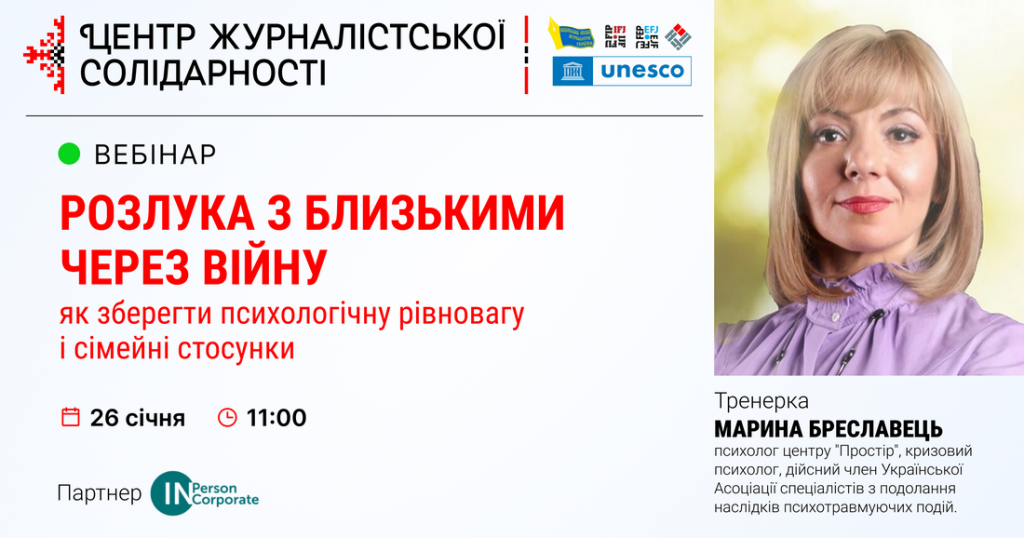
Answering the questions of the webinar participants, the psychologist emphasized that there are no families without conflicts. It is important to follow the rules of behavior in conflicts, to separate a loved one from his or her actions, which may even not be liked. Physical exercises or learning foreign languages can help to get rid of excessive emotional tension.
NUJU First Secretary Lina Kushch drew attention to the problem of separation from the loved ones staying in captivity. Their relatives are often in a difficult emotional state, it seems to them that everyone has forgotten about their captive relative, they do not pay due attention to his fate. Sometimes these negative emotions spill out on journalists asking for a comment…
According to Maryna Breslavets, aggression on the part of such people is a natural phenomenon, the result of internal pain and a feeling of powerlessness. And if a journalist encounters a manifestation of aggression, they should understand that they accidentally became an object. In this case, it is advisable to express sympathy in response to aggression: “I understand how it hurts you now.” As Nataliya Nalyvaiko added, a journalist can also let a person know that they have been heard.
Answering the question of one of the participants of the webinar, how to get rid of panic attacks in the event that a loved one who is at the front or in the occupied territory does not answer phone calls, Maryna Breslavets suggested using the usual exercises for panic attacks (breathing in for the count of 4, exhaling for the count of 6-8, stomping feet or something), return to the “here and now” (find 5 red or green things in the room, in case of severe panic attacks “talk about what you see in the room, what sounds you hear, what smells you sense, get to know what the surfaces of surrounding objects are when you touch them). And Nataliya Nalyvaiko additionally offered to analyze own fears to figure out which of them are real and which are “made up”.
The webinar is an integral part of the cooperation of the NUJU with IN-Person Corporate, the provider of the Employee Assistance Program (EAP) program in Ukraine.
As earlier reported, the NUJU with the support of UNESCO has launched a program for psychological support of journalists and their family members. As part of the program operates Ukraine’s first 24-hour “hotline” for media professionals. Besides, webinars with psychologists take place. Any journalist, as well as their relatives, can contact the “hotline” 24/7 and receive help from professional psychologists. The service is free, confidential, and accessible from any region or country where the media workers are located. You can contact the psychologist calling 0800 501 594 or using Viber/WhatsApp +38 067 861 9792.
Journalists’ Solidarity Centers are an initiative of the NUJU implemented with the support of the International and European Federations of Journalists, as well as UNESCO. The initiative is designed to help media representatives working in Ukraine during the war. Such Centers operate in Kyiv, Lviv, Ivano-Frankivsk, Chernivtsi, Zaporizhzhia, Dnipro and provide journalists with organizational, technical, legal, psychological and other types of assistance.
Maksym Stepanov, the NUJU information service





